#LearnEnglish
Explore tagged Tumblr posts
Text

Learn 25 phrasal verbs with OUT
#englishlanguage#grammar#easyenglish#learnenglish#ielts#toefl#esl#englishlearning#englishtips#englishclass#estudiaringles#grammartips#learngrammar#learnenglishonline#learnenglish_easily#studyenglish#ingles#inglesonline#instaenglish#englishlearningonline#dailyenglish
10 notes
·
View notes
Text


"Outdraw" = attract a larger audience. ⠀ Past / Past Participle: outdrew / outdrawn ⠀ Example: Joe couldn't believe that such a nerd like Mike outdrew all girls on the beach. ⠀ Example: She outdraws all male stars at the box office. ⠀ Learn irregular verbs in our app - https://onelink.to/9ssyrh
#irregular verbs#irregularverbs#english language#english#learn english#learnenglish#irregular verb#english verbs#efl#toeic#toefl#esl
8 notes
·
View notes
Text
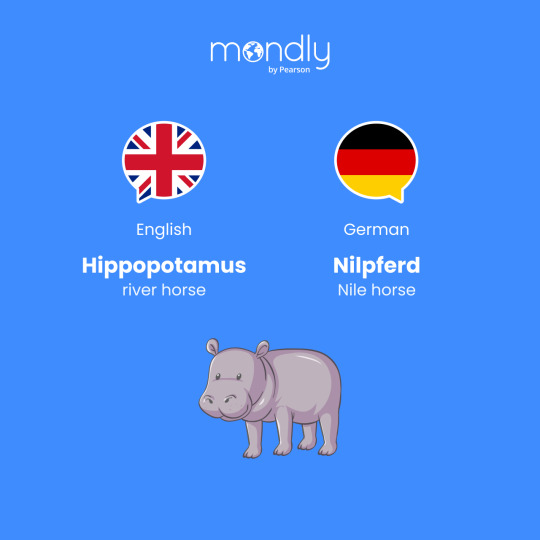
Moo Deng has got us all obsessed with hippos. 🥹 How do you say 'hippopotamus' in your language? 🦛
#mondly#pearson#moodeng#hippo#languages#languagelearning#didyouknow#learnlanguages#english#german#learngerman#learnenglish#inglese#inglesfacil#angielski#ingles#inglés#inglês#anglais#hablainglés#英語を習う#영어회화#deutsche
11 notes
·
View notes
Text
cherry blossoms

the roads are lined with cherry blossoms right now,
creating a beautiful pink path.
But soon,
it will all be over,
as cherry blossoms only stay in full bloom for a short time.
Today, it feels like we’re in the middle of spring.
The cherry blossoms are starting to fall, and the roads are lightly pink with petals, but they’re no longer sparkling like before.
#English#EnglishLearning#Literature#Language#LanguageLearning#Reading#Writing#Langblr#Studyblr#StudyTips#LanguageStudy#LitNerd#ReadingCommunity#WritersOfTumblr#WritersCorner#LearnEnglish#EnglishLanguage#EnglishGrammar#LanguageLover#LanguageNerd#ClassicBooks#LiteraryAnalysis#AcademicWriting#StudyMotivation#Lingblr#Linguistic#Linguistics#Linguist#Languages#LearningLanguages
4 notes
·
View notes
Text
Enhance Your English Skills with Fun Games: Wordle and 4 Pics 1 Word
Introduction
Learning English can sometimes feel overwhelming, but incorporating fun games like Wordle and 4 Pics 1 Word into your routine can make the process both enjoyable and effective. These games not only entertain but also challenge your vocabulary, spelling, and critical thinking skills, making them perfect tools for anyone looking to improve their English.
The Power of Wordle in Language Learning
Wordle has taken the internet by storm, and for good reason. This simple yet addictive game asks players to guess a five-letter word in just six tries. The game’s appeal lies in its simplicity and the challenge of finding the correct word with limited clues. But how exactly can Wordle help with learning English?
Vocabulary Expansion: Every Wordle round introduces you to new words, broadening your vocabulary. Even if you don’t guess the word correctly, you’re exposed to a variety of terms that you can add to your lexicon.
Spelling Practice: Wordle requires precise spelling, making it an excellent way to practice and reinforce correct spellings of English words.
Critical Thinking: The game encourages you to think critically about word patterns, letter placements, and possible word combinations, which are crucial skills in language learning.
Why 4 Pics 1 Word is a Must-Try for English Learners
4 Pics 1 Word is another fantastic game that can boost your English skills. The game presents four images that all have something in common, and your task is to figure out the word that links them.
Contextual Understanding: 4 Pics 1 Word helps you understand words in context, which is a vital part of mastering a new language. By connecting images to a single word, you reinforce the meaning and usage of that word in different scenarios.
Word Association: This game enhances your ability to associate words with various concepts and ideas, making it easier to recall and use them in conversation.
Learning Through Play: The game format is engaging and interactive, ensuring that you’re learning while having fun. This method of learning through play helps solidify your understanding and retention of new vocabulary.
Tips for Using Wordle and 4 Pics 1 Word in Your English Learning Routine
Daily Practice: Incorporate these games into your daily routine. Just a few minutes each day can significantly improve your vocabulary and problem-solving skills.
Challenge Yourself: Don’t be afraid to tackle difficult words or puzzles. The more you push yourself, the more you’ll learn.
Play with Friends: Engage in friendly competition with others who are also learning English. Discussing the puzzles and solutions can provide additional learning opportunities.
Conclusion
Learning English doesn’t have to be all about textbooks and grammar exercises. By integrating games like Wordle and 4 Pics 1 Word into your study routine, you can make learning more enjoyable and effective. These games not only challenge your mind but also enhance your vocabulary, spelling, and critical thinking skills, making them invaluable tools for any English learner. So why not start today? Play a round of Wordle or solve a puzzle in 4 Pics 1 Word, and watch your English skills grow!
7 notes
·
View notes
Text
◦•◦Word of the Day◦•◦
◦•◦ Saccharine ◦•◦
Definition: Sickeningly Sweet
Sentence: She distracted the guards with her sacharine voice.
#writing#words#definition#meaning#learning#writers of tumblr#writers on tumblr#writing tips#writing advice#spelling#beautiful#poems on tumblr#poets on tumblr#tumblr#viral#trending#new trend#day 1#learnsomethingneweveryday#learnenglish#writerscommunity#new series
16 notes
·
View notes
Text
Scientists say monkeys are 98% human. The other 2%? Just screaming in different languages 🙊
🇪🇸 ¡Uu uu aa aa! 🇫🇷 Hou hou 🇯🇵 ウキキ 🇰🇷 우끼우끼 🇩🇪 Uhu uhu 🇧🇷 Uh uh ah ah

3 notes
·
View notes
Text
#CELPIP#CELPIPPrep#CELPIPMadeEasy#LanguageTest#EnglishProficiency#StudyTips#TestPreparation#CanadaImmigration#EnglishSkills#CELPIPSuccess#ExamStrategy#LearnEnglish#TestReady#LanguageLearning#ScoreHigh#CELPIPGuide
6 notes
·
View notes
Text
✨ Have you ever felt at peace in chaos?
That’s Eudaimonia — a deeper kind of happiness. Not the highs, not the thrills... but a radiant harmony when you’re living in tune with your soul 🌅🧘♀️
📖 Word of the Day: Eudaimonia
(noun) The radiant harmony of living in alignment with your essence, beyond fleeting joy.
🎶 Imagine finding beauty even in a traffic jam… that’s the vibe.
Let’s romanticize our lives—one word at a time. ���
❤️ Save this word
💬 Comment how YOU define inner peace
🔁 Share with someone who’s chasing real joy
🔔 Follow for daily words that feel like poetry
#WordOfTheDay #Eudaimonia #AestheticWords #VocabularyBuilder #PoeticSoul #NewCreator #FYP #MentalWellness #SelfAwareness #EmotionalIntelligence #RomanticizeYourLife #UrbanSerenity #DeepWords #InnerPeace #GlowUpMindset
#englishlearning#learnenglish#englishlanguage#englishvocabulary#englishgrammar#englishfluency#advancedenglish#c1english#c2english#books#englishteacher#englishlesson#englishstudy#studyenglish#englishresources#englishpractice#englishskills#englishlearningtip#englishlearningcommunity#englishlearningblog#englishlearningresources#tumblr fyp
3 notes
·
View notes
Text
Make Your English Flawless
Want to take your English skills to the next level? In today’s video, we’ll be sharing simple yet effective tips to help you speak and write flawlessly in English. Whether you're preparing for IELTS, aiming to improve your communication skills, or just want to sound more confident, this guide will help you avoid common mistakes and enhance your fluency. Start speaking with precision today!
youtube
#learnenglish#EnglishFluency#EnglishTips#SpeakEnglish#FluentEnglish#IELTSPreparation#ImproveCommunication#ConfidentSpeaking#EnglishSkills#FlawlessEnglish#Youtube
2 notes
·
View notes
Text
youtube
Настройся на английский. Изучай английский, запоминая песни. Мы создали новую песню для запоминания новых английских слов. Слушаем и запоминаем то, что получилось.
Пишите свои новые английские слова, мы добавим их в новые выпуски. Поможем друг другу в изучении такого сложного языка.
В этом видео мы выучим минимум 10 новых английских слов и фраз.
1. Perhaps – возможно
2. Suddenly – внезапно, вдруг
3. Direction – направление
4. Divided – разделённый
5. Difference – разница, различие
6. Reason – причина
7. Raised – поднятый, повышенный (может также означать “воспитанный” в зависимости от контекста)
8. Held – удерживаемый, проведённый (например, мероприятие)
9. Describe – описывать
10. Solve – решать (проблему, задачу)
Текст песни для запоминания английских предложений и слов:
[Verse 1]
Perhaps the time will show the way,
Возможно, время покажет путь,
Suddenly, the clouds fade away.
Внезапно облака исчезают.
A new direction opens wide,
Новое направление открывается перед нами,
No longer divided, we stand side by side.
Больше не разделены, мы стоим плечом к плечу.
[Chorus]
What’s the difference? It’s all so clear,
В чём разница? Всё стало ясно,
The reason we’re here is to conquer fear.
Причина, почему мы здесь, — побороть страх.
Raised by hope, held by dreams,
Подняты надеждой, удержаны мечтами,
Describe the path, solve the themes.
Опиши путь, реши задачи.
[Verse 2]
Perhaps the stars will guide us tonight,
Возможно, звёзды укажут путь этой ночью,
Suddenly, the darkness turns to light.
Внезапно тьма превращается в свет.
Every direction leads to the unknown,
Каждое направление ведёт в неизвестность,
But divided hearts can’t build a home.
Но разделённые сердца не могут построить дом.
[Chorus]
What’s the difference? It’s all so clear,
В чём разница? Всё стало ясно,
The reason we’re here is to conquer fear.
Причина, почему м�� здесь, — побороть страх.
Raised by hope, held by dreams,
Подняты надеждой, удержаны мечтами,
Describe the path, solve the themes.
Опиши путь, реши задачи.
[Bridge]
Perhaps we’ve always known inside,
Возможно, мы всегда знали в глубине души,
Suddenly, our souls collide.
Внезапно наши души встречаются.
The direction is forward, together we go,
Направление вперёд, вместе мы идём,
Not divided, let the unity show.
Не разделены, пусть единство проявится
[Outro]
Describe your reason, solve your fears,
Опиши свою причину, реши свои страхи,
Held by dreams through the years.
Удержаны мечтами через годы.
Raised by love, the difference is clear,
Подняты любовью, разница становится ясной,
Perhaps the future is already here.
Возможно, будущее уже здесь.
#LearnEnglish#SpeakEnglish#StudyEnglish#gartage_education#английскийпоплейлистам#английскийпопесням#английскийдляначинающих#Youtube
2 notes
·
View notes
Text

Learn 14 phrasal verbs with DO
#englishlanguage#grammar#easyenglish#learnenglish#ielts#toefl#esl#englishlearning#englishtips#englishclass#estudiaringles#grammartips#learngrammar#learnenglishonline#learnenglish_easily#studyenglish#ingles#inglesonline#instaenglish#englishlearningonline#dailyenglish
5 notes
·
View notes
Text

Happy 2025! 🥂🤩 How do you say it in your language? 👇
#mondly#pearson#languages#languagelearning#learnlanguages#english#learnenglish#french#learnfrench#spanish#learnspanish#inglese#inglesfacil#2025#resolutions#newyear#happynewyear#resolutions2024#language
5 notes
·
View notes
Text
Four-panel comic of my moving
I recently moved to Itabashi Ward, so I decided to make a four-panel comic to share my thoughts about it.




There are so many hills that it's hard to pedal a bike.
ママチャリだと移動というよりも筋トレ
#English#EnglishLearning#Literature#Language#LanguageLearning#Reading#Writing#Langblr#Studyblr#StudyTips#LanguageStudy#LitNerd#ReadingCommunity#WritersOfTumblr#WritersCorner#LearnEnglish#EnglishLanguage#EnglishGrammar#LanguageLover#LanguageNerd#ClassicBooks#LiteraryAnalysis#AcademicWriting#StudyMotivation#Lingblr#Linguistic#Linguistics#Linguist#Languages#LearningLanguages
5 notes
·
View notes
Text
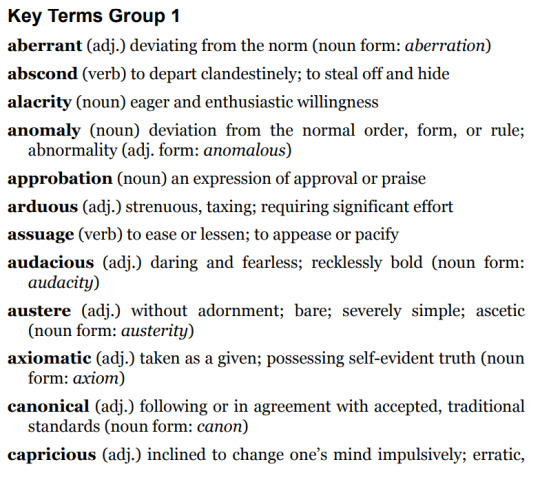
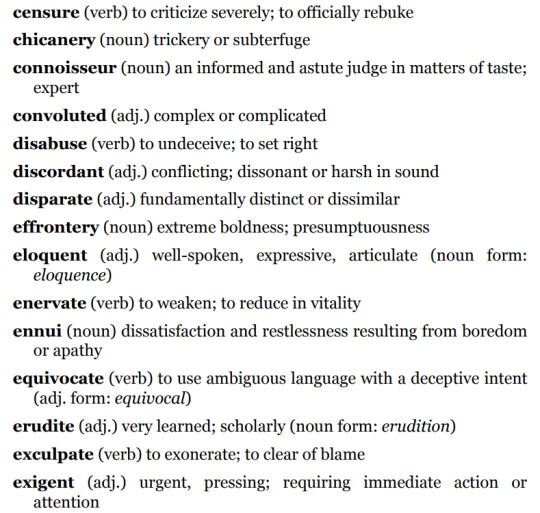
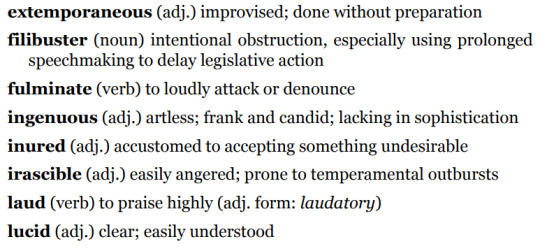
Source: Cracking the GRE Premium Edition with 6 Practice Tests, 2020
Let me know if more are needed Tip: Put them in gpt and ask it to create a downloadable version of flashcards
#VocabularyBuilding#LearnVocabulary#VocabularyPractice#WordOfTheDay#WordPower#ExpandYourVocabulary#ImproveYourVocabulary#DailyVocabulary#AdvancedVocabulary#VocabularyTips#Exam Preparation#ExamPreparation#ExamSuccess#StudySmart#StudyTips#ExamStudy#AceYourExams#TestPrep#ExamStrategies#StudyMotivation#PrepareForExams#Language Learning#LearnEnglish#EnglishVocabulary#ESLVocabulary#LanguageLearning#LanguageStudy#EnglishLearningTips#MultilingualSkills#SecondLanguageLearning
2 notes
·
View notes
Photo
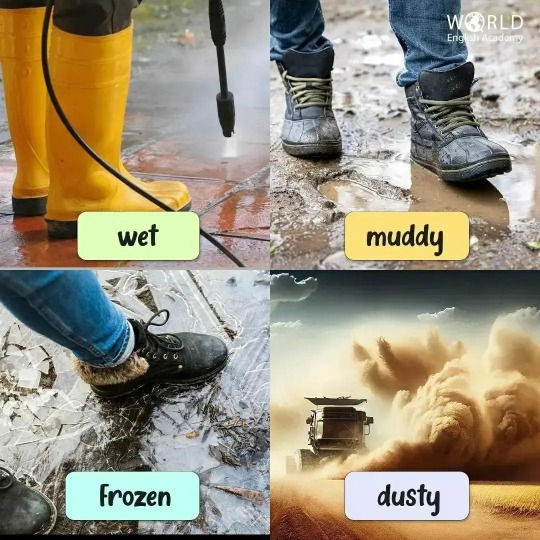



Like❤️ |Share👥 | Follow✅ Credits : @english_wea
#learnenglish#englishgrammar#vocabulary#englishclass#studyenglish#englishlanguage#americanenglish#anglais#englishteacher#englishtips#learningenglish#esl#grammar#englishlessons#ielts#englishonline#angielski#englishstudent#easyenglish#inglés#englishlesson#إنجليزي#inglês#англи́йский#inglesonline#inglesnoinstagram#speakenglish#eslteacher#LanguageLearning#LearnLanguages
26 notes
·
View notes